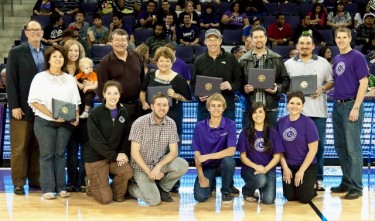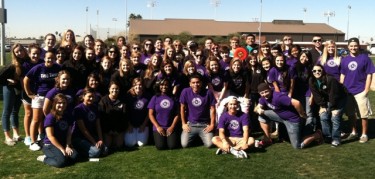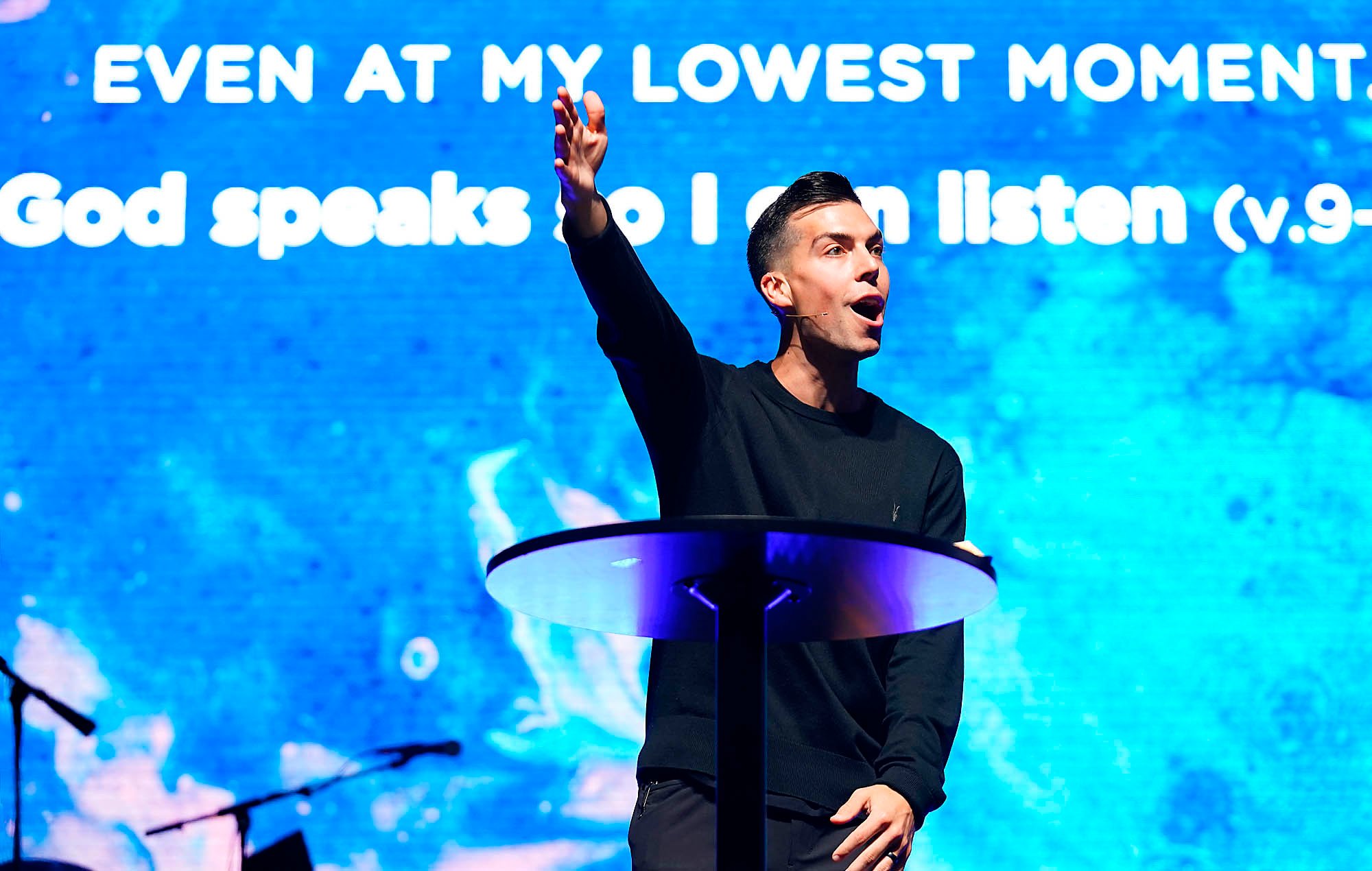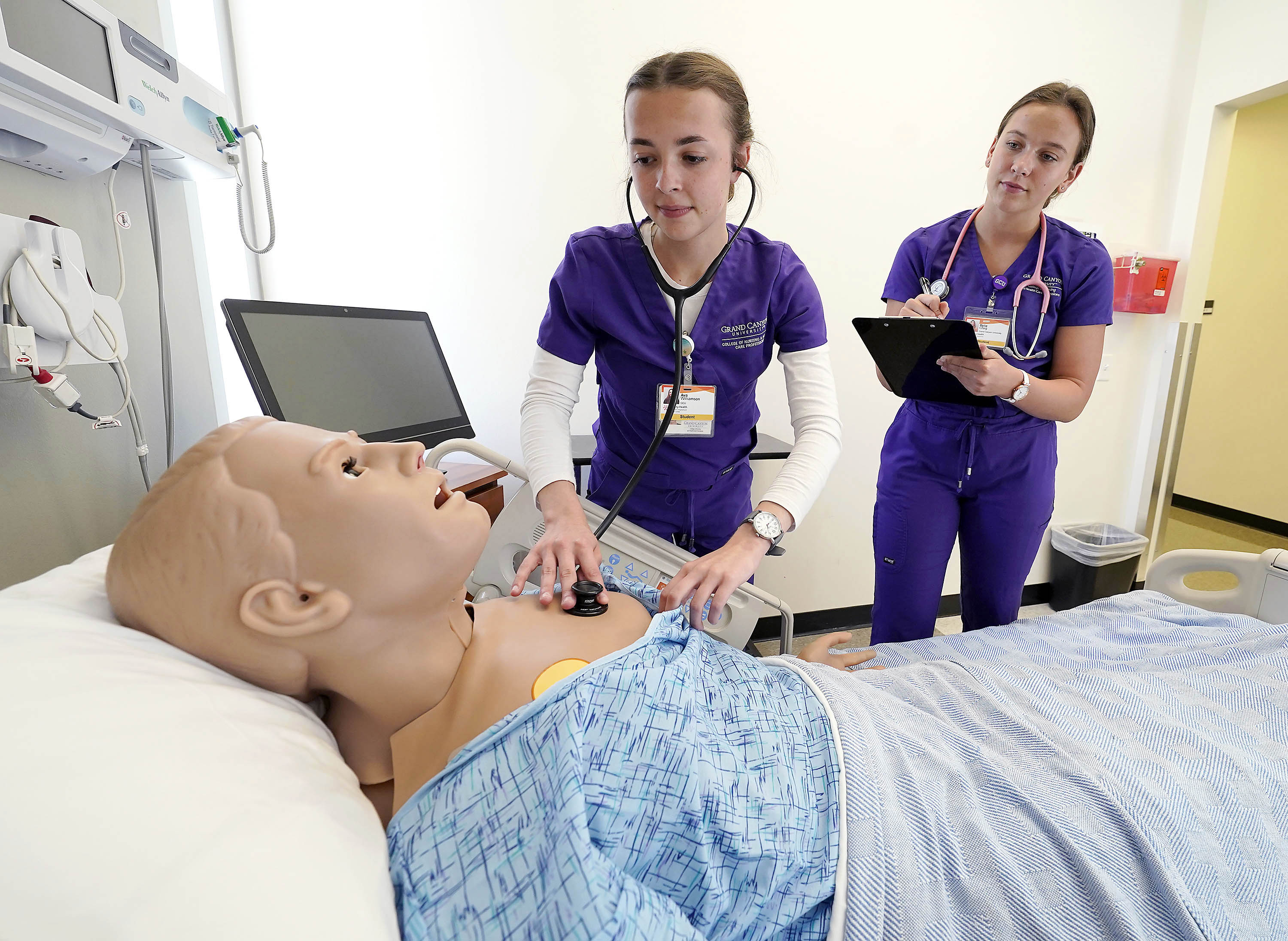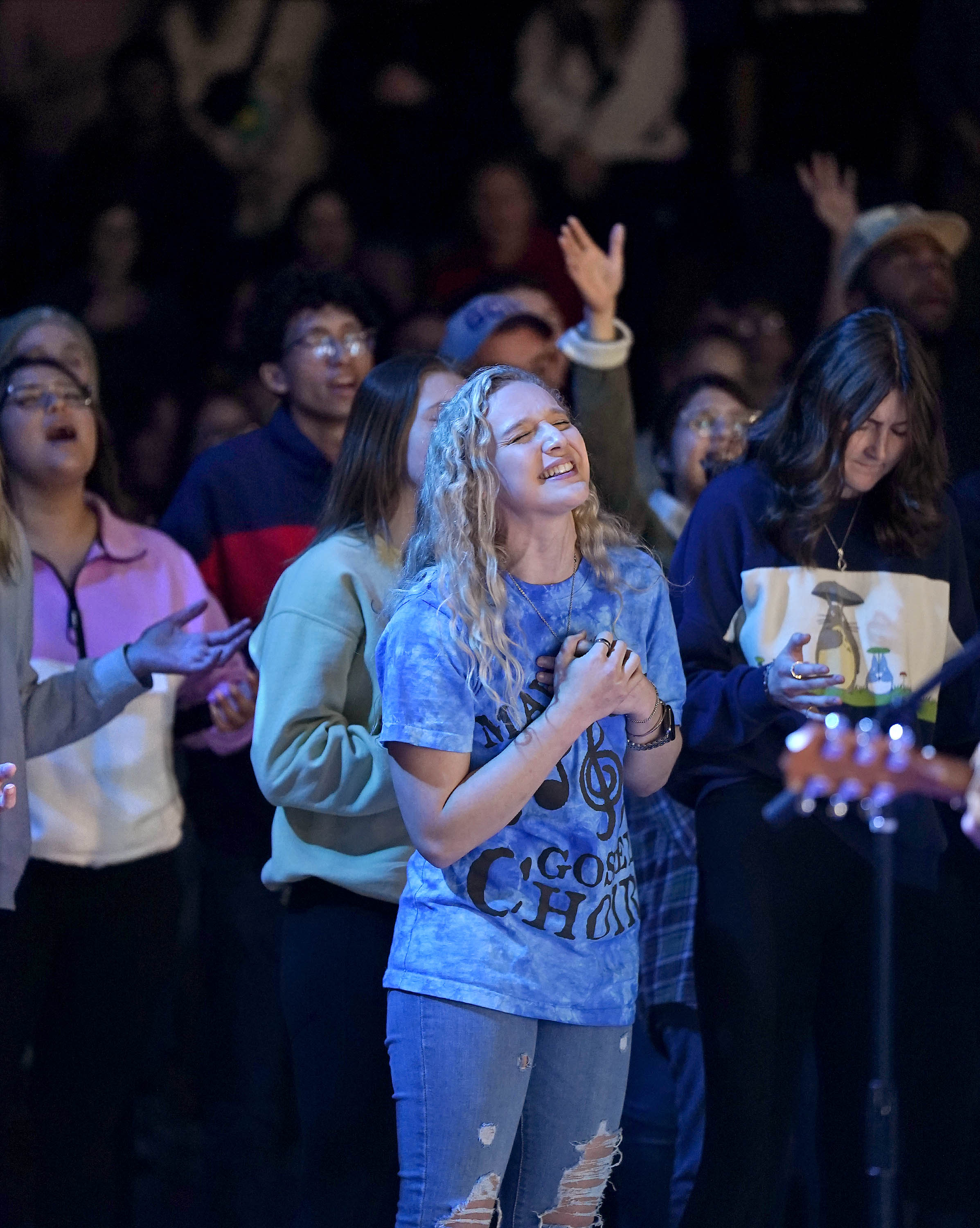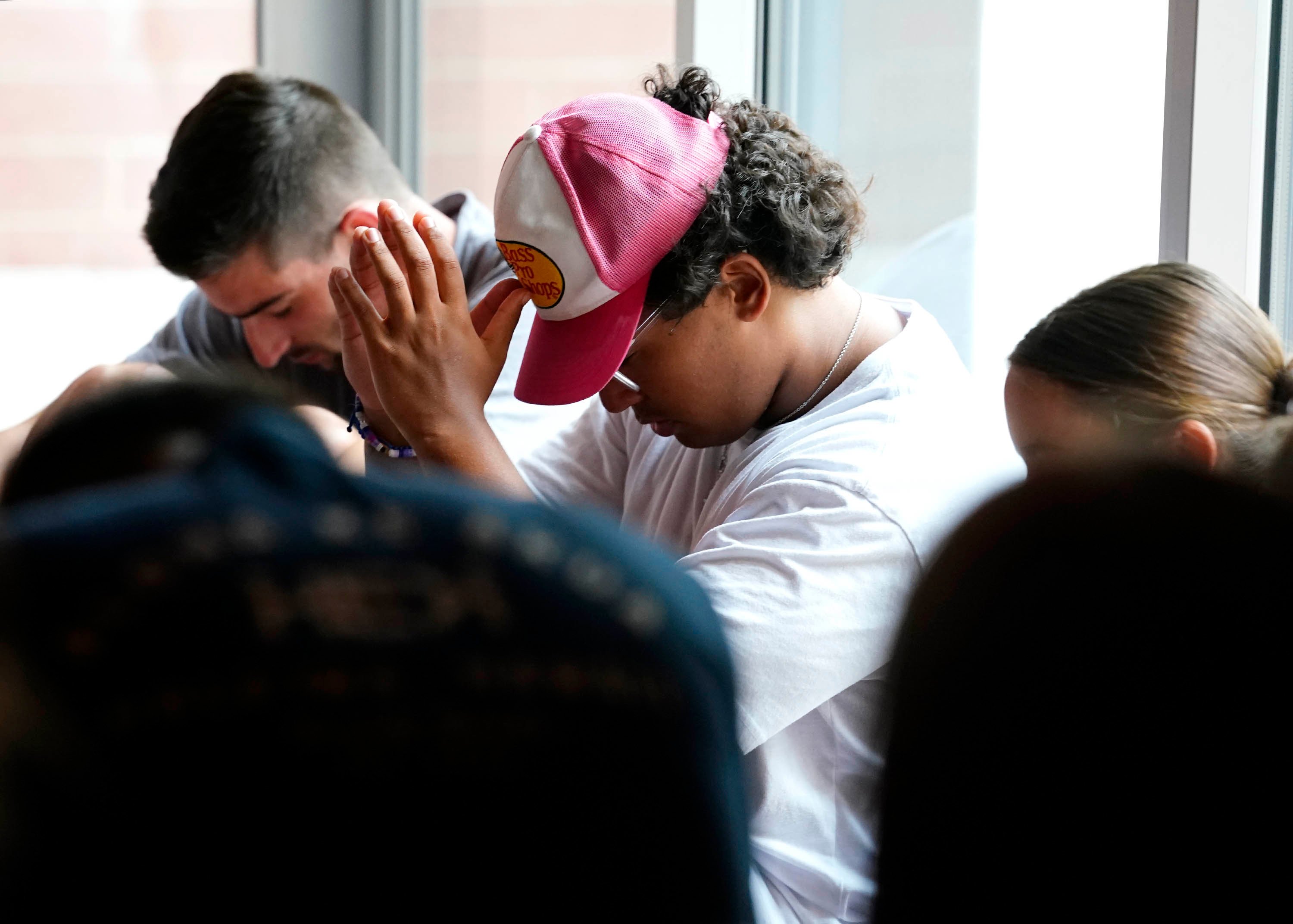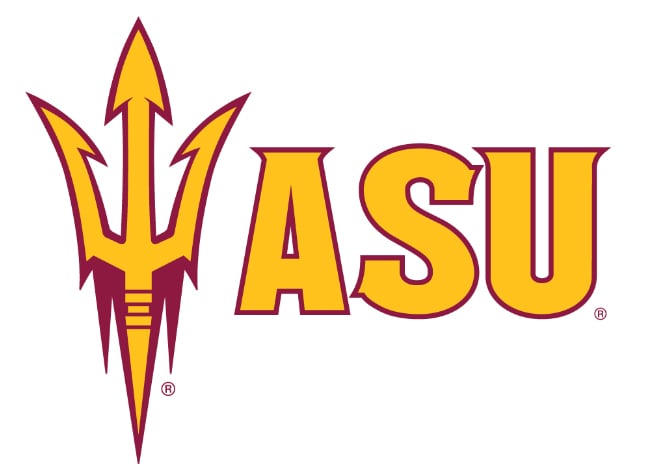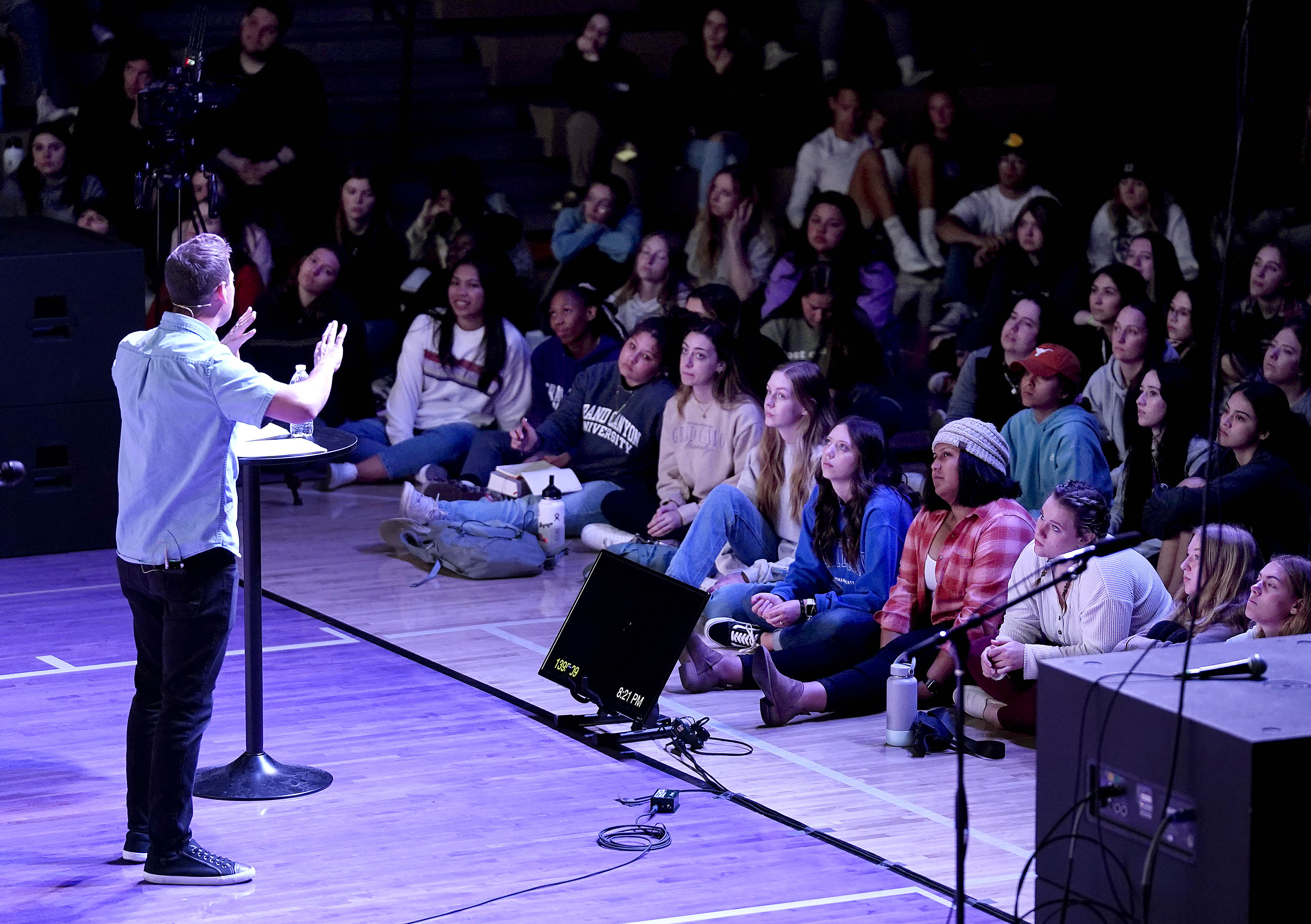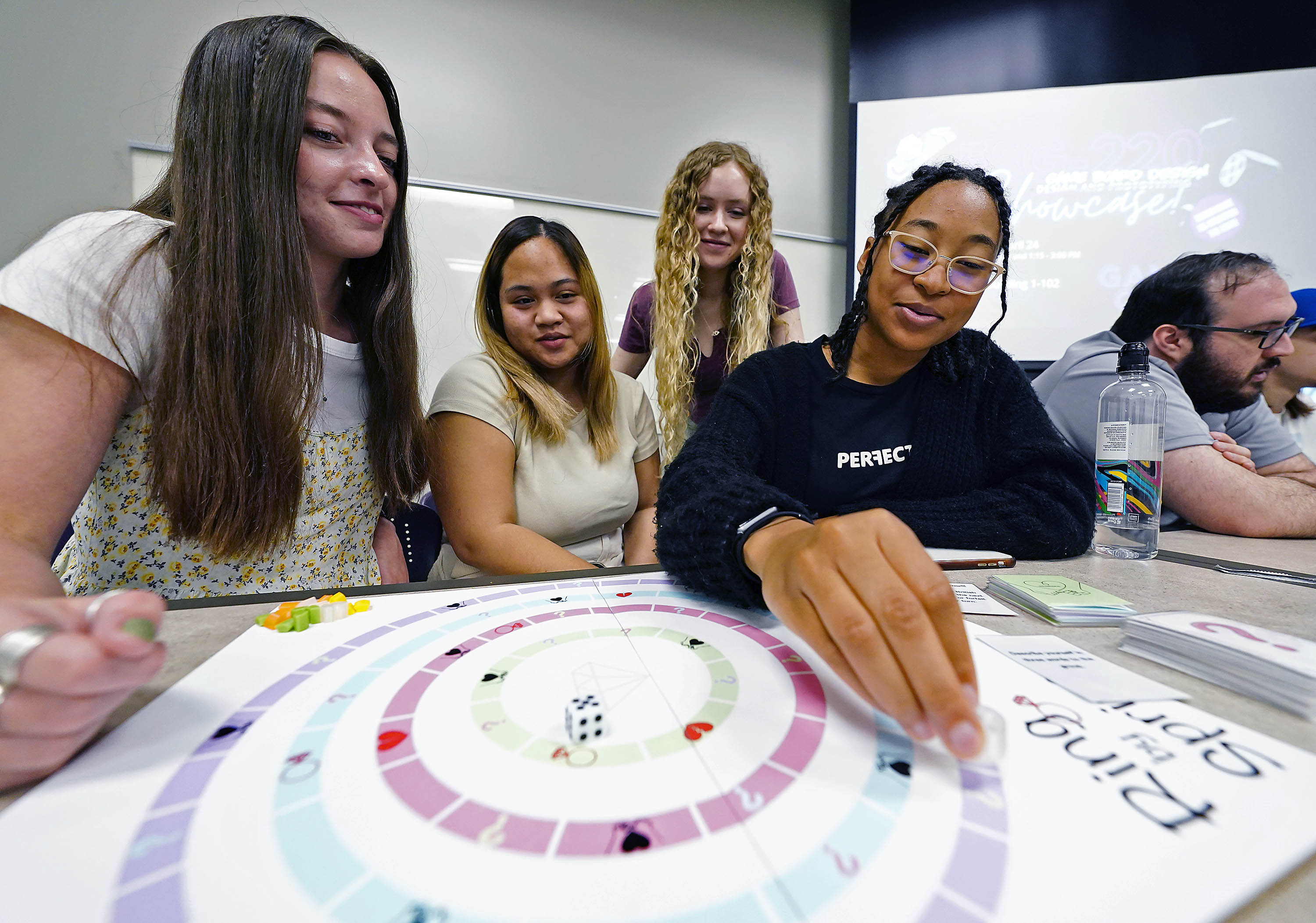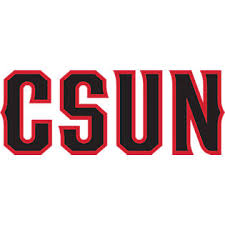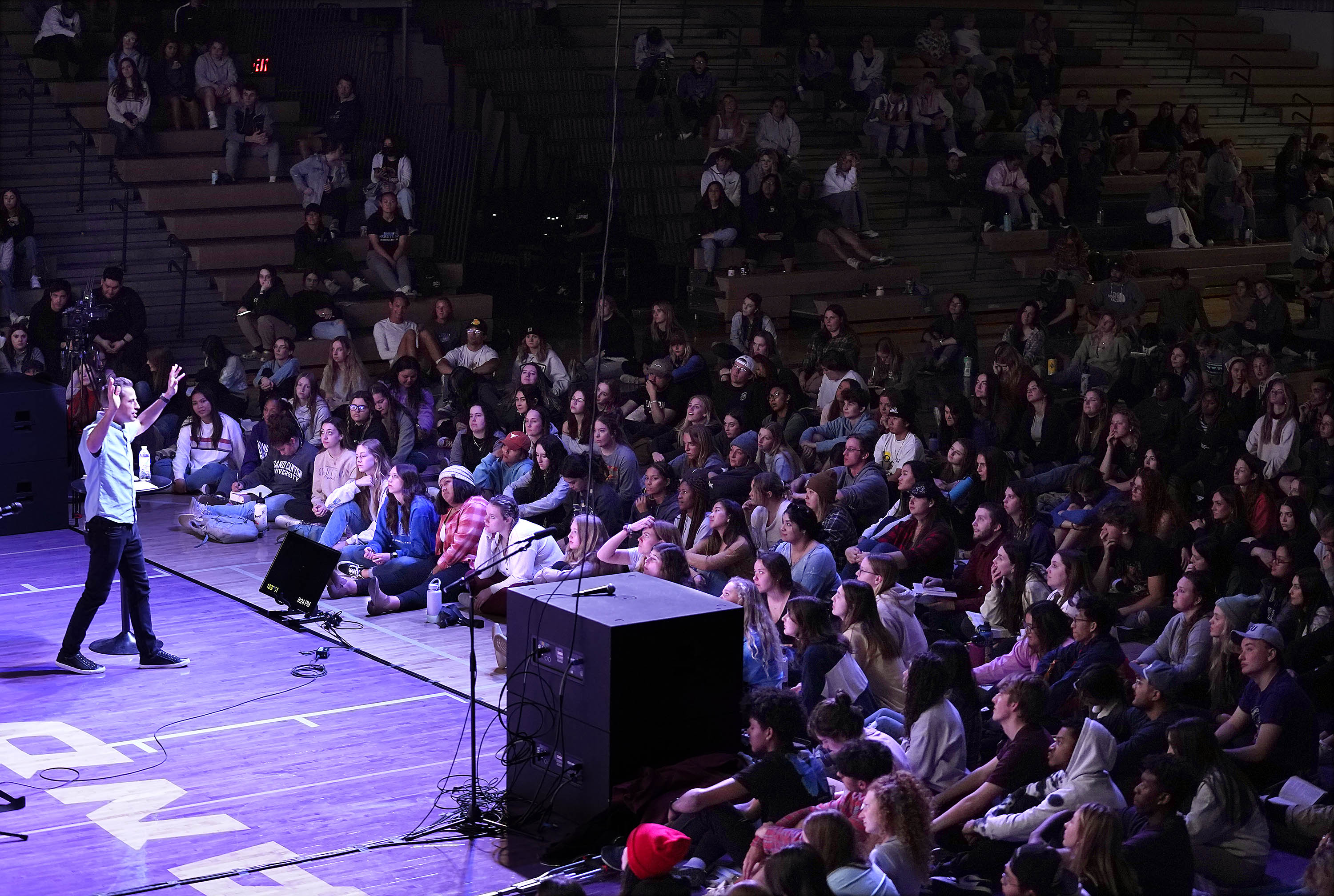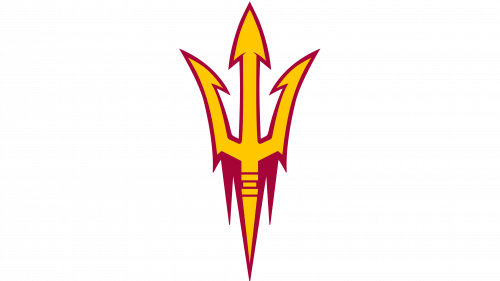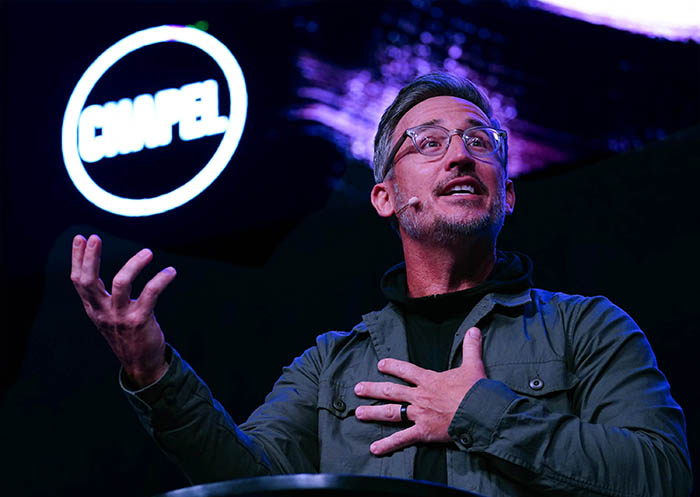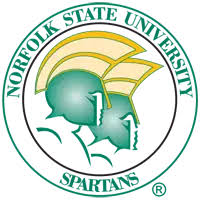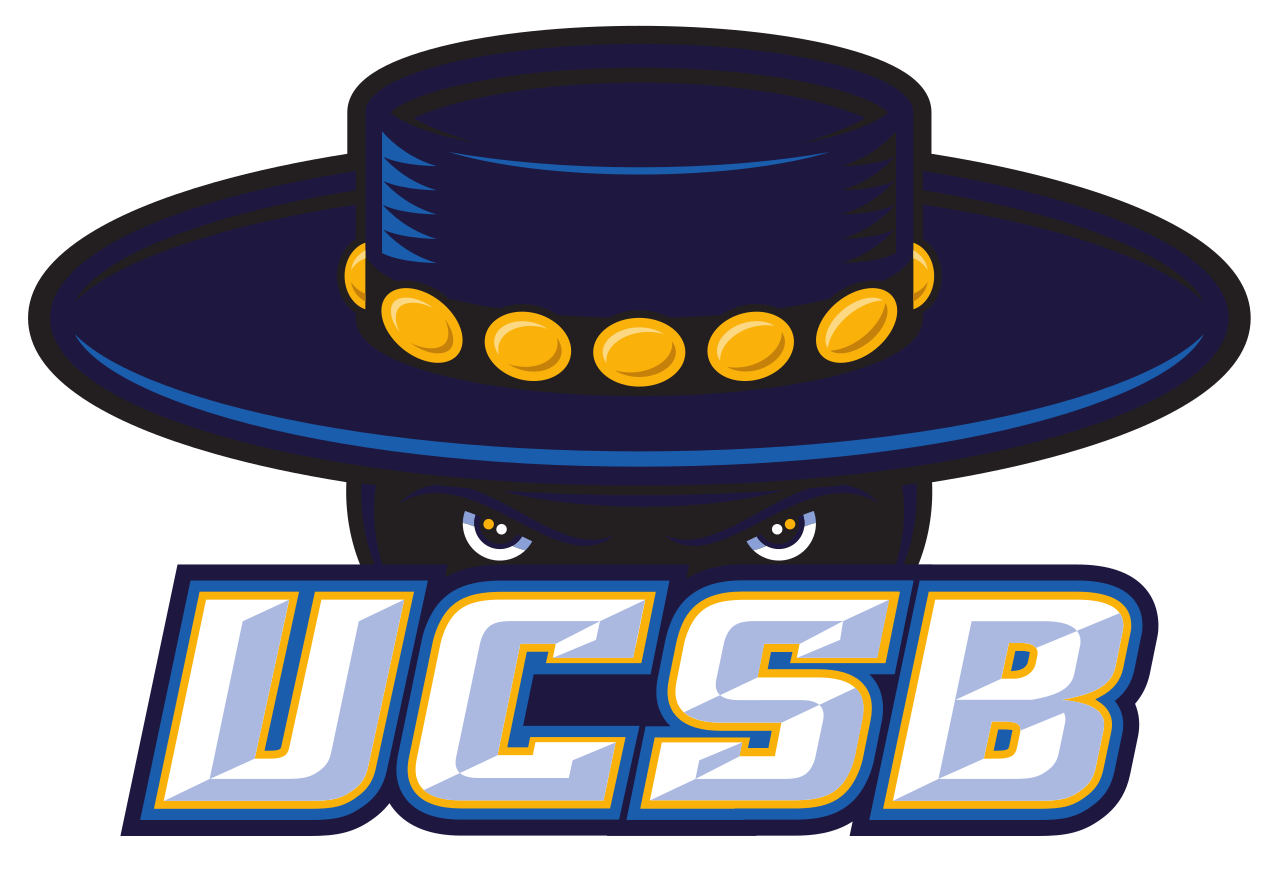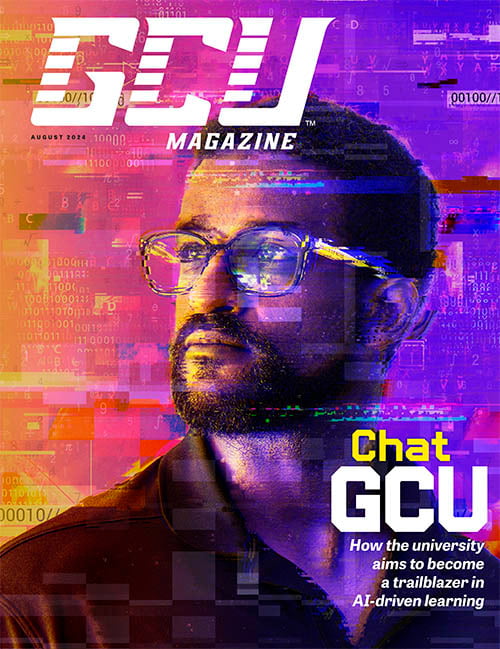By Bob Romantic
GCU News Bureau
Grand Canyon University is on the recruiting trail, letters of intent in hand, looking for the best and brightest to represent the college.
In this case, however, it’s not star athletes they’re looking for. Or even the 4.0 student, necessarily.
Instead, GCU is looking for good academic students who are also Christian leaders in their communities. And the university is offering big scholarship dollars to become part of its Servant Scholar program.
“If we’re recruiting the top athletic talent, why not recruit for top spiritual talent as well?” said Scott Fehrenbacher, director of faith-based development at GCU. “We are a Christian university and these kinds of overachieving Christian leaders are the seeds we need to build this campus.”
Grand Canyon offers annual scholarships of up to $10,000 to 50 students each year. This year, they had 330 applicants for the program. In return, Servant Scholars sign a contract or letter of intent that stipulates, among other things, that they must:
-- Live on campus.
-- Maintain a 3.0 GPA.
-- Attend monthly leadership training.
-- Meet weekly with prayer partners.
-- Attend chapel at least 10 times per semester.
-- Serve four hours per week in the community with one of GCU’s ministry partners.
-- Dedicate an additional two hours per week building relationships with students on campus.
-- Refrain from sexual activity outside of marriage.
-- And abstain from alcohol if under 21 and drunkenness regardless of age or location.
“Unbelievably, no other school does this,” Fehrenbacher said. “So when we are out on the road we are able to get the attention of kids who otherwise never would have considered us. … And not only does the scholarship opportunity attract them, but what I’ve found is that the whole sensibility or determination of what’s important to a school, that gets their attention. They’ll say, ‘Well, that’s a place I want to go to school. There must be kids there that are like me.’”
New recruits
Incoming Associated Students of GCU president Nick Ely was one of those kids. A graduate of Pinnacle High School in Paradise Valley, he attended Arizona State University his first year of college. But after learning of the Servant Scholar program and visiting GCU, he was hooked.
“I liked ASU. The reason for my switch had much less to do with what was wrong with ASU and much more about what I liked about GCU.” Ely said. “I was really drawn to the whole community aspect at GCU. There’s a tight-knit group of friends and faculty that support each other and I really wanted to be part of that.”
Nick Fanelli was another of those “kids.” At age 33, he’s not a typical college student. He attended community college and was in the workforce for a while. But he heard about the Servant Scholar program and applied, finding a new home on GCU’s campus.
“Being part of the Servant Scholar program, it’s nice to be in a community at a university where multiple people share that Christian viewpoint and are proactive in really living it out,” said Fanelli, a business administration major. “It’s not something you just do, it’s something you are a part of.
“I’m human, just like everybody else. There are definitely days I would rather not go to my volunteer work and just catch some zzz’s or catch up on that paper I need to write. But when you hear stories of other people having really cool experiences in what they’re doing with their ministry, it really props you up and energizes you and reminds you why you’re doing what you’re doing.”
Giving back
For some, the requirements to maintain the Servant Scholar scholarship may seem difficult. But for the types of students being recruited, it’s basically an extension of who they are.
“If you’re already doing ministry, it’s pretty easy,” said senior Raul Saenz, who will become the first graduate of the Servant Scholar program when he gets his diploma May 3. “When I saw the (letter of intent), I was like, ‘This is what I’ve been doing anyway.’”
For the four hours of outside ministry, students can choose from GCU’s 25 ministry partners, including community street ministry, foster care, prison ministry, an adult assisted living center, or urban poverty centers, among others.
“We want the Lord to break their hearts by letting them see what’s going on in the city and the world, and turn that broken heart into an overflow on the streets,” said Lance Schrader, who oversees the program as director of Spiritual Life.
The two hours of weekly on-campus relationship-building can be met by simply attending athletic events, hanging out at the campus pool or Thunder Alley, or just talking to someone who is sitting alone at dinner.
“Our best ambassadors aren’t our marketing pieces; it’s not our television commercials. It’s our students,” Fehrenbacher said. “And it’s had tremendous benefits for the university – benefits we probably haven’t even seen yet.”
Growing pains
The Servant Scholar program has undergone several changes since its inception as a Young Life Ambassadors program two years ago. But Schrader said the university wasn’t getting the sheer number of leaders it was looking for.
So, instead of letting someone else send the students to GCU, the university opened it up to other programs and took ownership by vetting the students through an interview process.
Although there is no fraternity system on campus, Servant Scholars added a Greek logo and the moniker Gamma Kappa Sigma to unite its students.
Schrader also changed the structure of the program to provide more mentoring opportunities and leadership training once students are enrolled. Next year, it will be refined further into a structure in which there will be 15 team leaders, each of whom will mentor three mid-level leaders. And those 45 mid-level leaders will in turn each mentor three other Servant Scholars.
“It’s accountability,” Schrader said. “There’s a lot of things these students are supposed to be doing to develop, and these mentors are helping you stay on track.”
That mentoring aspect and leadership training is what sets the Servant Scholar program apart from what other colleges are doing.
“We’re trying to use this as a way to really mold leaders,” Fehrenbacher said, “so that when they graduate from this university, they’re not only representing the value of their diploma, they’re representing the value of leadership training and ministry so that they’re uniquely prepared for the world.”

